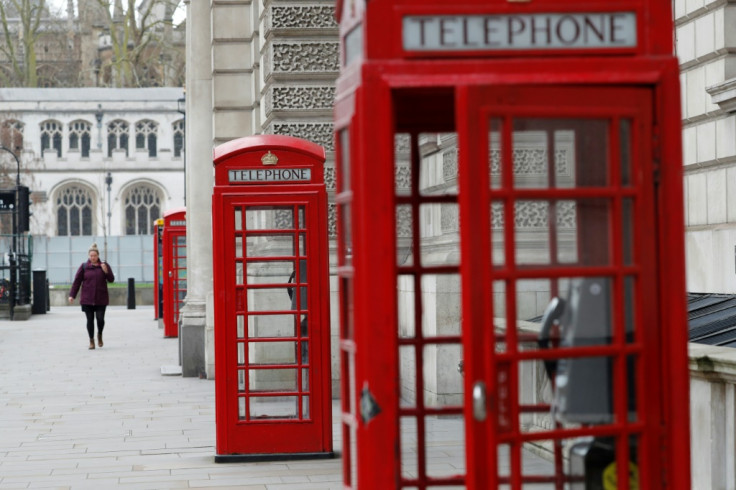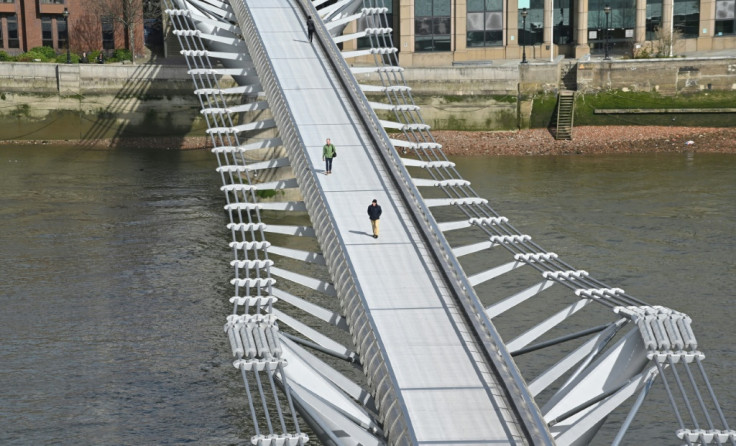UK to close schools, put troops on standby as coronavirus deaths rise
As the outbreak spreads and the death toll reached 104, up from 71 in a day, Boris Johnson said schools would be closed indefinitely later this week.
Britain announced Wednesday it would be closing schools in the coming days and placing 20,000 troops on standby in efforts to stem the spread of coronavirus, as the death toll topped 100.
Prime Minister Boris Johnson had held off following the lead of other European countries because of the impact it would have on the workforce.
But as the outbreak spreads and the death toll reached 104, up from 71 in a day, he said schools would be closed indefinitely later this week.
"After schools shut their gates from Friday afternoon, they will remain closed," he told his daily news conference.
Exceptions will be made for the children of key workers -- including healthcare staff, police and delivery drivers -- and for the most vulnerable children.
Johnson earlier this week advised people to work from home and avoid unnecessary social contact and travel, warning the infection rate was starting to spike.
On Wednesday he said this was having an effect but repeated advice for people with symptoms to self-isolate for between one and two weeks, depending on circumstances.
"We will not hesitate to bring forward further and faster measures," he added.
On Wednesday evening the Ministry of Defence (MoD) announced that 20,000 military personnel were being placed at "higher readiness" to help public services as part of a "COVID Support Force".

Defence secretary Ben Wallace said the armed forces "stand ready to protect Britain".
The MoD said reservists would be called up and 150 military personnel trained to drive oxygen tankers to support the health service, if needed.
Speculation is rife that London in particular could soon be subject to more draconian measures, as the capital records the most number of cases.
"We know London is ahead of the rest of us so we may see more stringent measures than even those that we have announced so far," Scottish First Minister Nicola Sturgeon said in Edinburgh earlier.
The government will on Thursday introduce legislation giving it emergency powers to deal with the outbreak, including to close premises and restrict gatherings.
Lawmakers were earlier told to stay away from Johnson's weekly question time in parliament amid warnings that Westminster is a particularly infectious area.
Some 25 MPs, including a cabinet minister, are already thought to have isolated themselves.

"There's a lot of COVID-19 in Westminster," tweeted epidemiologist Professor Neil Ferguson, a government adviser, as he announced that he had also developed symptoms.
But MPs will gather on Thursday to debate new emergency legislation to deal with the coronavirus outbreak, which ministers hope to push through within days.
The government says its powers will only be used when "absolutely necessary" and the bill has support from opposition parties.
But some MPs voiced concern at the sweeping nature and duration of the proposals, and the effect on civil liberties.
Johnson's government has come under pressure to do more to tackle the outbreak of COVID-19, given the tough lockdowns imposed in other European countries.
But he insisted all action was driven by the science, adding: "We're going to do the right measures at the right time."
So far Britain has around 2,600 cases, but chief scientific adviser Patrick Vallance this week warned that 55,000 Britons could have the virus at a "reasonable" estimate.
The new social distancing advice sparked warnings that many businesses, particularly in the hospitality industry, could go bust.
The FTSE 100 slumped again Wednesday, dropping as much as 5.0 percent in morning trade, while the pound hit its lowest level since 1985 against the dollar, touching $1.1828.
Finance minister Rishi Sunak on Tuesday announced a package of support for businesses, including government-backed loans of at least ?330 billion ($395 billion, 360 billion euros).
On Wednesday, Johnson also promised legislation to protect individuals unable to pay their rent because of job losses caused by the crisis from evictions.
In other developments:
- The government said it was working to increase the number of people in hospital being tested for COVID-19 to 25,000 a day and ensure frontline health workers get the protective kit they need.
- Johnson said there was a "massive effort" to build enough ventilators to treat the worst-hit patients, after concern about a shortage.
- Supermarkets, whose supplies have been hit by panic-buying, said they would safeguard supplies for the elderly and most vulnerable, including dedicated opening times only for older customers.
- The 50th Glastonbury music festival became the latest casualty of the outbreak, with this year's event pushed to 2021.
Copyright AFP. All rights reserved.
This article is copyrighted by International Business Times, the business news leader






















